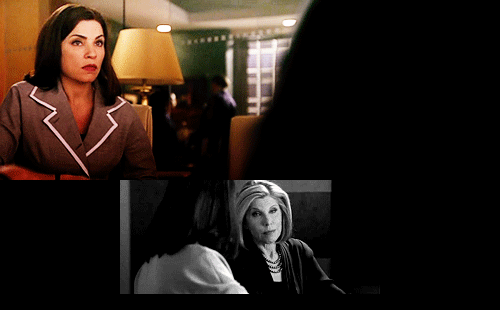#the good wife
DIANE; We need you to take first chair.
ALICIA; Because my husband cheated on me?
[awkward pause]The Good Wife, 2x22 Getting Off
Post link
Kalinda, there are so many people who can see us right now, but I swear I will scream at the top of my lungs if you don’t get out of my office now.
Post link
Now that badass TV bitches like Alicia Florrick on The Good Wife and Olivia Pope on Scandal are giving HJs, hand stuff is chic again! It’s time to give handies their rightful place in the hitting-it hall of fame.
Psst: don’t forget to subscribe to the FLARE YouTube channel for a new episode of #BrionysTeenyTiny every Friday! ow.ly/8urt302QRJZ
“Hey, here’s a thought. You give my husband one year probation, no jail time. And I’ll work up a demure smile for you. How’s this?”
- Alicia Florrick (The Good Wife Finale)
Post link
When I first heard Suzanne Collins’ name it was right as Mockingjay came out. I was working in a bookstore, so I had no fucking excuse for this oversight. But I snagged a copy of Hunger Games from the table and read it on my lunch break and immediately tore through the next two (which, for those of you who have not yet read the trilogy, I don’t recommend doing at this pace. Mockingjay is largely incoherent if fascinating and it requires a full night’s sleep and at least two square meals under your belt at all times.)
A piece of writing like Collins’ has a cultural footprint, and it expands on the basis of three things, the first two of which can be directly managed by authors and publishers.
The first is marketing; which is how the book looks to those who haven’t yet read it.
The second is publicity; how it looks to those who have read it who are talking to others who haven’t read it.
The third, which is largely outside of publisher control, is word-of-mouth, which is an amalgam of the previous two, and I designate it as a third category because it’s the uranium standard of a book’s success. Which is to say that if you can gather and refine and centrifuge word of mouth using a qualified crew of sellers and readers and marketers, you can power the whole goddamn company. Or you can scorch the earth (more on that later).
Years ago I recall that my dad mused out loud about what makes a “sleeper”; a book or movie or whatever that experiences a growth in popularity over time rather than an initial burst which quickly fades (as most art commodities do). This was of course before the advent of the Internet as we now know it, so his musing was very open-ended and there were no analytics or archives that he had at his disposal to consider; what’s the stochastic system that culminates in someone you trust pleading/demanding that you read/watch/listen to this thing? Which, for the purposes of this piece, I’ll call the sleeping point.
The Hunger Games trilogy reached its sleeping point well before the movie was released (and were arguably never sleeper books to begin with), but the movie(s) have turned it from publishing phenomenon into cultural phenomenon. The marketing campaign was given a second act by the movies, and what an act. Now folks consider class differences using the the Districts as their critical template. Now we see the host of imitations as creators and publishers rush to mine the same uranium vein and producing…mixed results. Trace this back to previous phenomena; Twilight, The Giver books, hell a Wrinkle In Time; books that people read and wouldn’t quit talking about, which got pimped and/or adapted and/or included in curricula and by one way or another got bolted to the popular consciousness as a result.
Take another Jennifer Lawrence project, Silver Linings Playbook. This was a movie that the studio correctly pronounced a sleeper well before release; and having marketed it with this in mind, it became the runaway success they hoped for and was quickly followed by two more re-teamings of the leads (American Hustle and the ominously-delayed Serena), the success of which is always compared to that of the original pairing. Matthew Quick’s source novel was snapped up by the fans of the movie, though his follow-up wasn’t able to ride the wave to similar success (though the adaptation is in the works, so we’ll see). Again, this relied on chance; for every sleeper film there are dozens of equally fascinating or entertaining movies that never see the light of a listicle or Netflix queue.
The actual mechanics of that process have likely been explored by people who aren’t writing this in the hour before the workday begins, and who have university library cards and nice couches. I’m not one of those people (though my couch is pretty great) - my thoughts on this come because the sixth season of The Good Wife, a show I’ve actively participated in pushing to the sleeping point, is currently airing.
TV shows hit their sleeping point at a similar pace as books (or series) that get adapted to screen. With a few exceptions (Hemlock Grove basically), books or series adapted to TV or film (Dexter, Game of Thrones, True Blood, Gossip Girl, The Leftovers) find their new fans a few years after publication and/or into their series run, which means that the word-of-mouth for each new season consequently impacts the marketing plans for new books; tie-in covers, bigger budgets, different placement and quantity in retail locations. TV shows are similar; for fans who come in two or three seasons into the show’s run, they encounter an established fanbase and storyline and characters, which is quite a pleasing experience as a consumer but also as a critic, armchair or otherwise. You’ve suddenly got a new common point with strangers and acquaintances and even your parents.
The Good Wife is such a common point, but it’s taken so long to reach its sleeping point exactly because of its initial marketing. Many of you may be thinking “The Good Wife? That show my parents watch?” And that’s true; the demographics for this show as well as other CBS offerings skew towards the demographic that has cable, a landline, and stays in on weeknights. And The Good Wife is consistently highly rated by critics, but so was The Closer, and if you can show me someone in the 18-30 demographic who’s seen every episode, I would be amazed. Critical acclaim does not equal popular acclaim does not equal popular coverage does not equal cultural importance.
Critics and I agree that the show’s fifth season was a risky move and the show’s writers and cast pulled it off impeccably; not to spoil anything, but it makes a few hard turns in plot and cast and underlays a few subplots which are just cracklingly fucking good. I came to the show halfway through the airing of this season and watched upwards of 100 episodes in three weeks to catch up. It was intense. I watched it while I walked. I watched it while I ate. I watched it whenever I was alone and I texted who’d listen as I did, every time I recognized an actor (seriously it’s like American Doctor Who, EVERYONE is on it) or saw something I’d never seen on TV. Which was often.
This year, CBS sent out a For Your Consideration mailing that basically said what I had come to understand, which is that the reason why The Good Wife is a sleeper is that, basically, viewers don’t know what’s good for them. They’re used to a particular format, when what they really should be looking for is good TV in any form (a sentiment that anyone who knows good web series can agree with).
The Good Wife is the heir apparent to the format that The West Wing built and then abandoned. 20 or more episodes a season, hour-long primetime slot, ensemble cast, serialized plot, engagement with current events, distinctive writing, luminous production design, and an impressive (and, at times, precarious) balance of entertainment with sheer intelligence and craft. The Good Wife is a skyscraper of a show that for years was just blindly passed over by all the people I knew who considered The West Wing the measure for bingeworthy ideal heavyweight non-premium drama.
Now we see the blogger outreach and conversation about this show change. Now it’s not “this show you’ve heard of but have no interest in is amazing, you should check it out and be surprised”. It’s “you do yourself a disservice by not watching the show”. I don’t know why it’s not on Netflix; complicated reasons involving licensing and fees and who knows, I’m a consumer not a publisher (of TV). But it’s not an overstatement that this show could save your life.
It is big, it is deep, and it is smart. If you need a palliative break from trauma, you just broke up with someone or lost someone or fucked up your chance at a new life or snapped a femur, watch the entire show. If you want to understand why law students are so insufferable, watch this show. If you want to see the only dramatic TV show that takes on modern tech trends with glee, watch this show. If you’re not easily impressed, watch this show. If you’re a feminist, watch this show. If you’re not a feminist, watch this show. If you want to see why TV awards shows exist, watch this show. This show will renew your faith in mass culture’s ability to foster beautiful, smart, awe-inspiring storytelling. It is not a “legal drama”. It is not about “a disgraced politician’s wife”. This show is about disappointment and regret and professionalism and loss and the way that life constantly, brutally goes on and we do what we can with the people we have to make the best of it. This show employs original music in a way that I have never heard any other show employ original music - I listened to one track from the soundtrack every time I headed to a job interview simply because it filled me with a neon geyser of mad energy.
I only watched Burn Notice because someone on the internet I trust wrote about it. Another show smarter than its marketing. Word of mouth; it changes your fate in ways so small and manifold it may well define your cultural experience in all ways, agency be damned.
It doesn’t matter when you start. It doesn’t matter who you are. The people whose livelihood depends on their talent to foster and promote and bring into being new culture are only one part of the process. No tastemaker or thought leader or marketing genius is worth shit without the consent of the consumer; this is why so many resources are devoted to removing the agency of the consumer, whether it’s preying on their laziness or stress, suppressing alternate options, or encouraging the popular conception that equating quality to money as a one-to-one.
The Good Wife is not the best show that has ever been made nor the best that ever will. But it is an experience like none other that you can participate in for various levels of free, and if you are reading this on the internet, you can start now. Fight your way to me. I’ll be waiting.
Wife’s Desire

Oh Yesss Babe !
Open minded partner = A lot of fun

What do you think ?
Wife’s wet desire

Done it !

Wife’s hot games
During our Holidays we always play hard without limits….

Wonder how will end that night ?


















